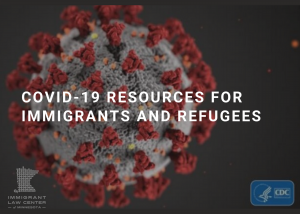News > Immigration In Minnesota
Twin Cities, Twin Plans for COVID-19 Economic Support
Posted on Apr 06 2020

Both Minneapolis and St. Paul announced relief programs to help low-income residents with housing costs. They will also offer assistance to small businesses. Both cities offer these programs to residents without regard to immigration status.
Minneapolis Gap Funding makes $3 million in housing assistance available to any Minneapolis residents, regardless of immigration status. This program has two separate sources of funding. Both are for low-income Minneapolis residents with income loss due to COVID-19.
The first program is for any families making 30 percent or less of the area median income. The second program is for families with at least one child enrolled in Minneapolis public schools. Families in this second program can make up to 50 percent of area median income. Income limits for both programs are listed on the Minneapolis Gap Funding web page.
The funds are limited. The usual payment will be no more than $1500 per household. Money may be used only for rent or utilities. Payments will be made directly to the property owner or to a utility company.
A second program offers no-interest loans to small businesses. These include businesses with 20 or fewer employees. Some self-employed people also qualify. The Minneapolis Gap Funding web page has details on this program. Loans may be forgivable if the business is located in a part of Minneapolis already designated for special assistance.
As of April 6, Minneapolis is still working on the application process. The number of applications approved will depend on the availability of funds.
The Saint Paul Bridge Fund is supported by the Saint Paul Housing and Redevelopment Authority. Other contributors include Baird, Bush Foundation, Ecolab Foundation, John S. and James L. Knight Foundation, Securian Foundation, Minnesota United FC, Minnesota Wild, Saint Paul & Minnesota Foundation, and Xcel Energy.
St. Paul’s Bridge Funding program offers up to $1,000 in housing assistance. This help is for families who have a minor child living in the home. They must have lost income due to COVID-19. Their income before COVID-19 can be up to 40 percent of the median income. In St. Paul, eligible families can be either renters or homeowners.
St. Paul will accept applications from April 8 to April 19. A lottery will select 1,000 applications for review. Other applications will be assigned randomly to a waiting list. If any funds are left after these applications are reviewed, applications from the waiting list will be considered.
St. Paul will also offer small business grants of $7,500 to qualifying St. Paul businesses. These businesses must be retail businesses located in St. Paul. Their gross annual income must be less than two million dollars. Other criteria are outlined on the Bridge Fund for Small Business web page.
The application period will run from April 8 to April 19.
The federal government is sending out “economic impact payments” to individuals. These payments are part of the CARES Act. Congress passed this law and the President signed it in response to the COVID-19 pandemic. The federal government excludes undocumented immigrants from this emergency assistance. It even excludes U.S. citizens living in their households.
Undocumented workers pay taxes. They may use an ITIN—Individual Taxpayer Identification Number instead of a social security number. Even though they pay federal and state taxes, they do not receive unemployment benefits. No matter how much they pay into the system, they will not receive Social Security benefits. No matter how much they are affected by COVID-19, they will not receive federal economic impact payments.




